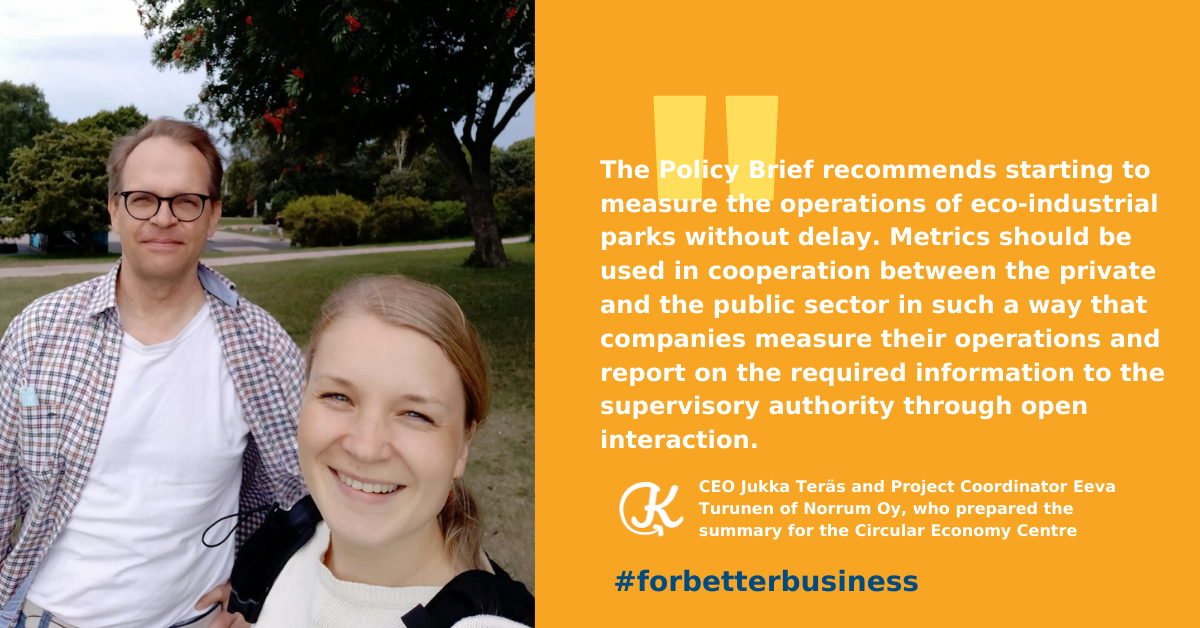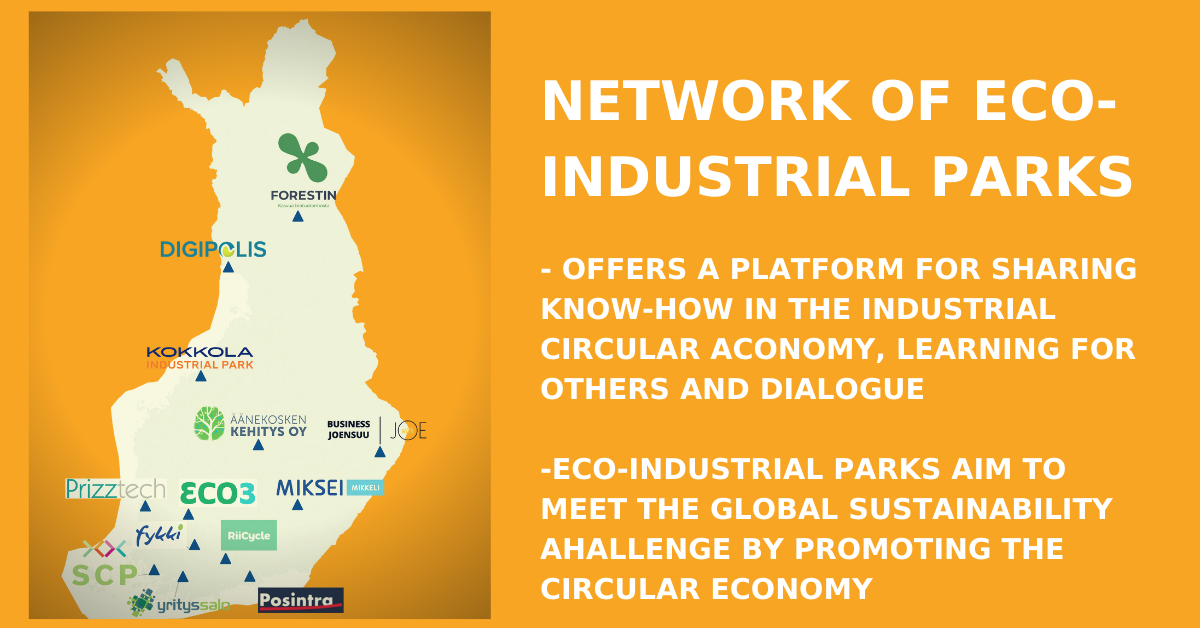Eco-industrial parks that promote the circular economy need their own metrics in order to develop their operations. Policy Brief, recently published by the Circular Economy Centre, recommends starting measuring eco-industrial parks without delay.

Policy Brief recommends starting to measure the operations of eco-industrial parks without delay, because the best way to learn from suitable monitoring mechanisms is by doing. Metrics should be used in cooperation between the private and the public sectors in such a way that companies measure their operations and report the required information to the supervisory authority through open interaction.
“In order to find suitable metrics, however, we need a shared view of how to define successful operations. Operators are also interested in where we stand in the change process and how fast we are moving towards a carbon-neutral circular economy that supports financial, social and environmental wellbeing in society equally,” say CEO Jukka Teräs and Project Coordinator Eeva Turunen of Norrum Oy, who prepared the summary for the Circular Economy Centre.
Uncertainty must be tolerated at an early stage
Senior Adviser Sari Tasa from the Ministry of Economic Affairs and Employment underlines that all eco-industrial parks located across Finland are very different from one another. There are some twenty significant eco-industrial parks investing in particular in sustainable development, cooperation between operators and the circular economy.
“Measuring can take place separately in each eco-industrial park, but some common metrics must be agreed on. When developing suitable metrics, unnecessary work should be avoided. Instead, it should be contemplated where measurement could be naturally developed as part of existing operations. Measuring should, however, start immediately. We must accept a certain level of uncertainty at the beginning and recognise that this is a learning curve,” Ms Tasa says.
Digitalisation in good use
“It would be interesting to develop channels where the reporting of operations could be automated and/or found from public databases. In addition, general attitudes could be mapped out using qualitative metrics, and we could have an idea about where the interests in the industrial circular economy are heading and what kind of recognised potential there is,” says Manager Tuomas Pussila of the Circular Economy Centre.
Part of wider development work
Policy Brief also recommends closer cooperation between eco-industrial parks and international dialogue in order to develop measuring operations. The summary and recommendations form the first set of a series of publications that present the measurement of eco-industrial parks. The publication describes development proposals from the viewpoint of individual eco-industrial parks, international experts and the network operations of Finnish eco-industrial parks.
The series of publications is part of the Industrial Circular Economy Platform (TKO) project headed by the Industrial Economy Centre. The project was selected as one of the Ministry of Economic Affairs and Employment’s spearhead projects in the development of industrial circular economy ecosystems in 2020–2022.

BY SOILE SUVANTO